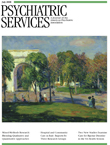The Symptom Is Not the Whole Story: Psychoanalysis for Non-psychoanalysts
As a teacher active in training medical students and psychiatric residents, I value any resource that brings psychoanalytic thinking alive and makes it accessible to those who work outside the specialized field of psychoanalysis. The central message of The Symptom Is Not the Whole Story: Psychoanalysis for Non-psychoanalysts is that psychological symptoms, and frequently physical symptoms, have significant meaning. I share the author's view that "[t]he essence of the psychoanalytic perspective is to see beyond the seen, to understand more than what is evident, and to decode the meaning behind the metaphors of our existence." I also fully subscribe to the book's premise that psychoanalytic perspectives enrich a clinician's understanding of human behavior and add an invaluable depth to diagnosis and treatment within the mental health field. As the author, Daniel Araoz, writes, "To help people change; the clinician must know how to listen to the client's unconscious and symptom metaphorical request for help. To consider the symptom as an isolated reality deprives the patient of the help she needs."
However, the author's idiosyncratic understandings and misunderstandings of basic concepts within psychoanalysis limit the value of this book as an introduction to the field. To give an example, Araoz states, "the id and the ego are engaged in a constant struggle for control of the ego, the individual"; and later, "When a normal person engages in impulsive shopping, reckless driving, excessive drinking or eating, his id is active and has taken over." Such statements are not mere simplifications. They create a caricature of psychoanalytic understanding of "structures" within the mind, equating these with literal "personality parts." The author's misunderstanding of Freudian thought is nowhere more obvious than in his description of the superego as "a spiritual or non-physical `agency' above instinct and culture." Similarly, Araoz demonstrates a fundamental misunderstanding of the concept of instincts and drives when he describes the love or eros drive and aggression or thanatos drive as competing tendencies and further describes eros as "the energy of life, present in humans and manifested in the best of human nature, like culture, art, science, compassion, heroism, forgiveness, and caring, as well as in the entire universe, from the magnificent majesty of galaxies hundreds of thousands of light years away to the millions of infinitesimally small subatomic components in our own bodies." Building from these ideas, Araoz suggests that a goal of therapy is "to increase Eros and diminish Thanatos," and that the patient learns in therapy that "by allowing her ego to side with Eros, she agrees with the superego and rejects the excessive demands of the id."
I could go on listing the peculiar notions and recommendations contained in this book, the questionable equation of weekly insight-oriented psychotherapy and psychoanalysis, the recommended routine use of hypnosis, the explicit emphasis on the use of suggestion, the active direction of the patient's associations, and so on. The bottom line is that I was excited about this book until I read it. Although it contains some interesting and provocative perspectives, I cannot recommend it as an exposition of psychoanalytic understandings.



